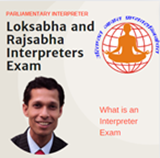An interpreter exam is an assessment designed to evaluate an individual’s language proficiency and interpretation skills. It is typically conducted to determine a person’s ability to interpret spoken or written communication accurately and efficiently from one language to another.
The specific format and content of an interpreter exam may vary depending on the organization or institution administering the test and the languages involved. However, some common elements that may be assessed in an interpreter exam include:
Language Proficiency: The exam may evaluate the candidate’s proficiency in both the source language (the language being spoken or written) and the target language (the language into which the interpretation is being done). This assessment may include grammar, vocabulary, reading comprehension, and listening comprehension.
Interpretation Skills: The exam may test the candidate’s ability to interpret and convey meaning accurately and effectively. This can involve simultaneous interpretation (interpreting in real-time while the speaker is speaking), consecutive interpretation (interpreting after the speaker has finished a segment), or sight translation (translating written text on the spot).
Subject Matter Knowledge: Depending on the context of the interpretation, the exam may assess the candidate’s knowledge and understanding of specific subject matters. This is particularly relevant in specialized fields such as legal, medical, or technical interpretation.
Cultural Competence: Interpreters often need to navigate cultural nuances and adapt their interpretations accordingly. The exam may include questions or scenarios that assess the candidate’s cultural sensitivity and understanding of appropriate linguistic and cultural norms.
It’s important to note that the specific requirements and standards for interpreter exams may vary depending on the purpose and organization conducting the test. For example, exams for Parliamentary Interpreters (Loksabha and Rajsabha), court interpreters, conference interpreters, or diplomatic interpreters may have different focus areas and criteria.
